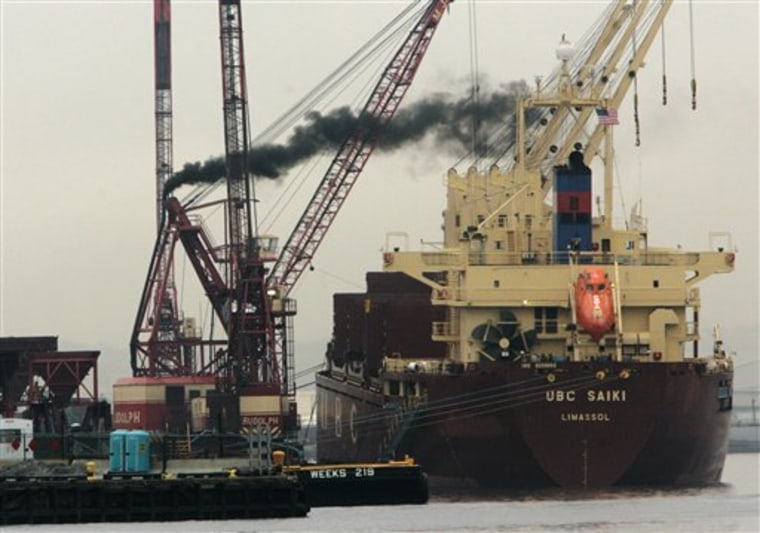The Environmental Protection Agency announced a plan Friday that would do away with most of the smog and soot caused by diesel-burning trains and boats.
It's an ambitious move supported by many environmentalists and air pollution officials.
"Every major metropolitan area in the country will benefit from the huge emissions reductions expected from this long-awaited rule," said Bill Becker, executive director of the National Association of Clean Air Agencies.
"We estimate the emissions benefits will be equivalent to taking three-quarters of a million diesel trucks off the road each year. EPA deserves a 'thumbs-up' for this proposal," he said.
EPA Administrator Stephen Johnson proposed the new emission standards for diesel locomotive engines, tugs, barges, ferries and recreational marine engines. The toxic chemicals and soot in diesel exhaust contribute to smog and can cause cancer.
"By tackling the greatest remaining source of diesel emissions, we're keeping our nation's clean air progress moving full steam ahead," Johnson said in a statement.
The standards, if adopted and fully phased in, would reduce particulate pollution from these engines by 90 percent and smog-forming nitrogen oxides by 80 percent, the EPA said.
The EPA proposes tightening pollution standards for remanufactured locomotives, newly built locomotives and marine diesel engines and longer-term technology upgrades to them. The standards for rebuilt trains would apply as early as next year, while those for new locomotive and marine diesel engines would be phased in starting in 2009 and take full effect a decade from now.
The Diesel Technology Forum, an industry group, said EPA's approach toward cutting diesel pollution from trains and boats is already succeeding with highway trucks, but that along with cleaner-burning engines it's important to promote more use of ultra-low sulfur diesel.
"Meeting EPA's new proposed emissions standards will be no simple task and will require a large development effort on the part of engine and emissions control equipment manufacturers," said Allen Schaeffer, the group's executive director.
Natural Resources Defense Council, an advocacy group, said the EPA plan could be held up by General Electric, since it is the nation's biggest locomotive maker. (GE is the parent company of NBC/Universal, which is a partner in MSNBC.com.)
GE wrote the EPA in December, seeking weaker smog standards for train engines than what EPA proposed. The company said it did not believe the technology would be available to make the cuts that EPA wants.
NRDC attorney Richard Kassel said that GE's response was typical of companies fighting regulation, but that history shows companies find ways to innovate and meet new standards.
Costs of the new pollution requirements are estimated at $600 million by 2030, adding less than 3 percent to the price of a locomotive and 1 percent to 3.6 percent to the price of boats using the cleaner engines.
Health benefits are estimated at $12 billion by 2030, including 1,500 fewer premature deaths, 1,100 fewer hospitalizations and 170,000 more work days by people breathing easier.
"EPA is clearly on the right track in proposing to address the dangerous diesel exhaust from trains and ships," said Fred Krupp, president of Environmental Defense, who was joining Johnson in announcing the proposal at Port Elizabeth, N.J.
The proposed rule is similar to ones adopted by EPA since 2000 for large diesel trucks and buses, and for construction, mining and agricultural equipment, which cut diesel exhaust through the use of low sulfur diesel fuel and improved engine designs, the group said.
"Cleaning these engines up will prevent death and disease," said Frank O'Donnell, president of Clean Air Watch advocacy group.
